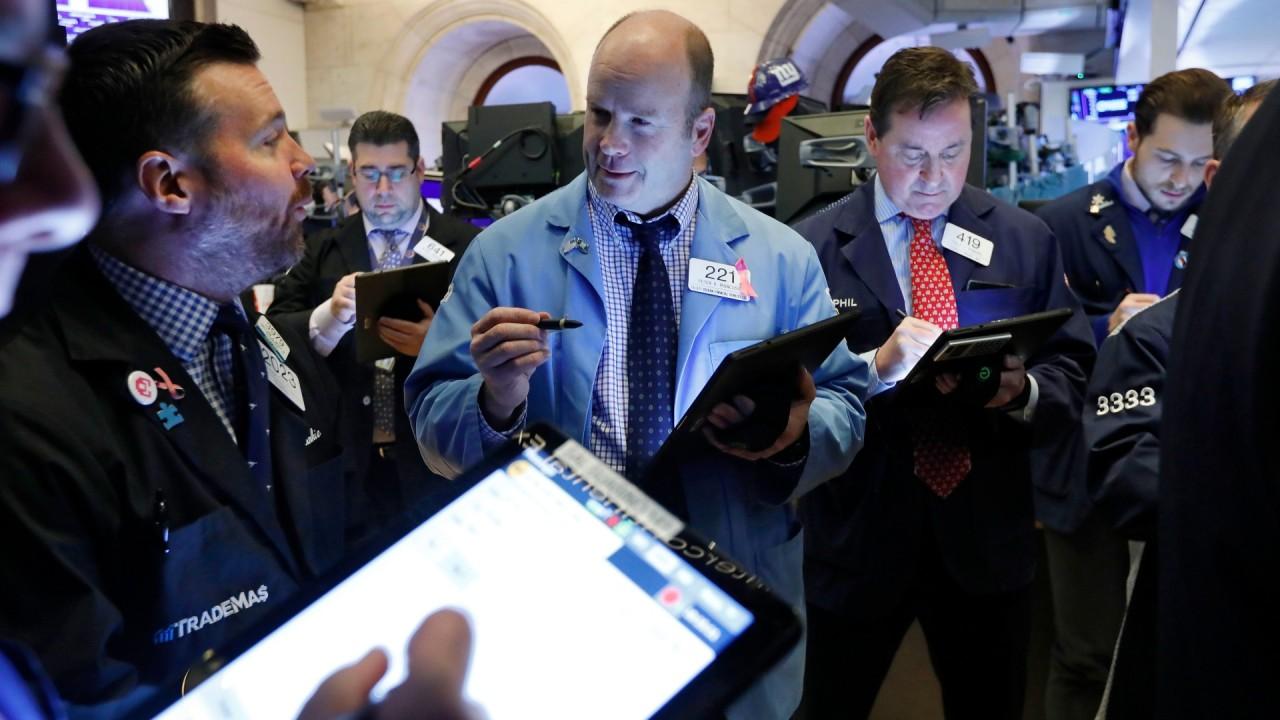Oil collapse over coronavirus fears overdone
Cooler heads suggest the historic hit to oil may be manageable
Sometimes when you look at markets, they seem to bottom when fear is at its zenith. Oil prices are poised for the first up week since the news of the coronavirus started to break because traders are beginning to buy on the fact that prices have fallen too far because of fear.
| Ticker | Security | Last | Change | Change % |
|---|---|---|---|---|
| USO | UNITED STATES OIL FUND - USD ACC | 76.98 | +0.28 | +0.37% |
Fear that the coronavirus will spread. Fear that oil demand will have its first quarterly drop since the financial crisis in 2009. Yet traders are starting to believe that the market has exaggerated the fear and the current impact on global oil demand.
CLICK HERE TO GET THE FOX BUSINESS APP
In fact, despite the fears that this virus might get worse and continue to zap energy demand, cooler heads are suggesting that the historic hit to demand may be manageable. Oil prices have already plunged over 22 percent on virus fears, and while some of that price drop was justified, it probably exceeded what was rational, at least at this point. U.S. Energy Secretary Dan Brouillette was telling the world that there is “no need to panic about coronavirus impact on oil markets.”
Reuters reported that Brouillette said that, “The coronavirus epidemic in China has had a marginal impact on energy markets and is unlikely to dramatically affect oil prices even if Chinese demand falls by 500,000 barrels per day.” Of course, he did not mention that the price of oil had already fallen over 20 percent, but you get his drift.
While we still hear horror stories about the coronavirus and its impact on global oil demand, in the whole scheme of things, a loss of 500,000 barrels a day of demand is manageable, assuming that things do not get worse. I know that is a big assumption but traders are looking at life after the virus.
Besides, there is a high probability that OPEC and Russian will, at some point, act to offset that loss. In an extended energy meeting, the group tried to engineer a 600,000-barrel-a-day production cut. The problem is that so far Russia has been reluctant to agree to a cut. They say they want to take more time to assess the situation. Yet sources say that at some point, the Russians will go along with a reduction in production.
CLICK HERE TO READ MORE ON FOX BUSINESS
With all of the focus on the demand destruction from the virus, the crude oil market has ignored production outages in other parts of the globe, most noticeably in Libya. Libyan oil production is at a virtual standstill because of the civil war there. Libyan strongman Khalifa Haftar is using force and wants to seize control of Libya’s oil and gas sector. Libyan oil exports have stopped and oil production has fallen by close to one million barrels a day. That is a number that might be twice as much as the current demand loss from the coronavirus.
The International Energy Agency (IEA), for comparison, has said they expect that oil demand will fall by 435,000 BPD this quarter. This is the first decrease since the financial crisis in 2009 due to the coronavirus outbreak in China, the International Energy Agency (IEA) said on Thursday.
I will also mention that there are still geopolitical risks as well. Tensions with Iran seem to have calmed down after President Trump took out Iranian Gen. Qassem Soleimani, yet the country is again creating havoc in the Middle East.
On top of that, in the U.S. oil demand, because of a strong economy and high consumer confidence, could shatter oil demand numbers this year. Not to mention that February tends to be a low point for oil and gasoline anyway, and they start to rise as the summer driving season is right around the corner.
Phil Flynn is senior energy analyst at The PRICE Futures Group and a Fox Business Network contributor. He is one of the world's leading market analysts, providing individual investors, professional traders, and institutions with up-to-the-minute investment and risk management insight into global petroleum, gasoline, and energy markets. His precise and timely forecasts have come to be in great demand by industry and media worldwide and his impressive career goes back almost three decades, gaining attention with his market calls and energetic personality as writer of The Energy Report. You can contact Phil by phone at (888) 264-5665 or by email at pflynn@pricegroup.com.





















